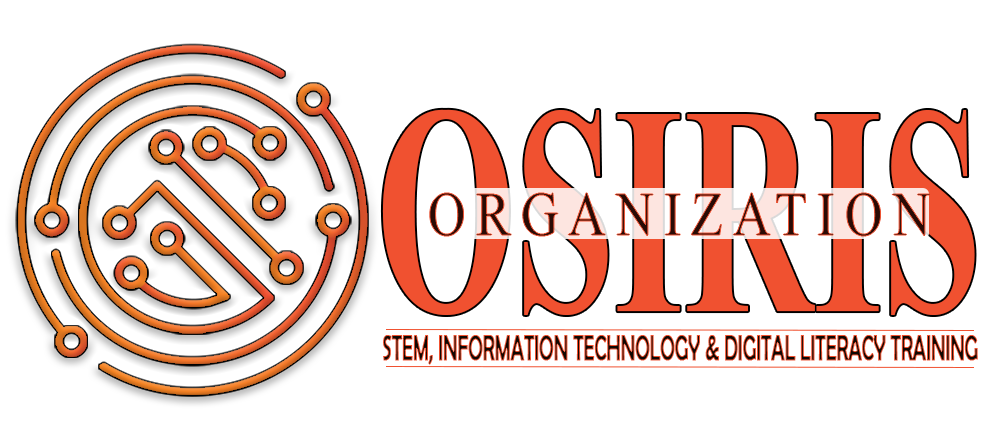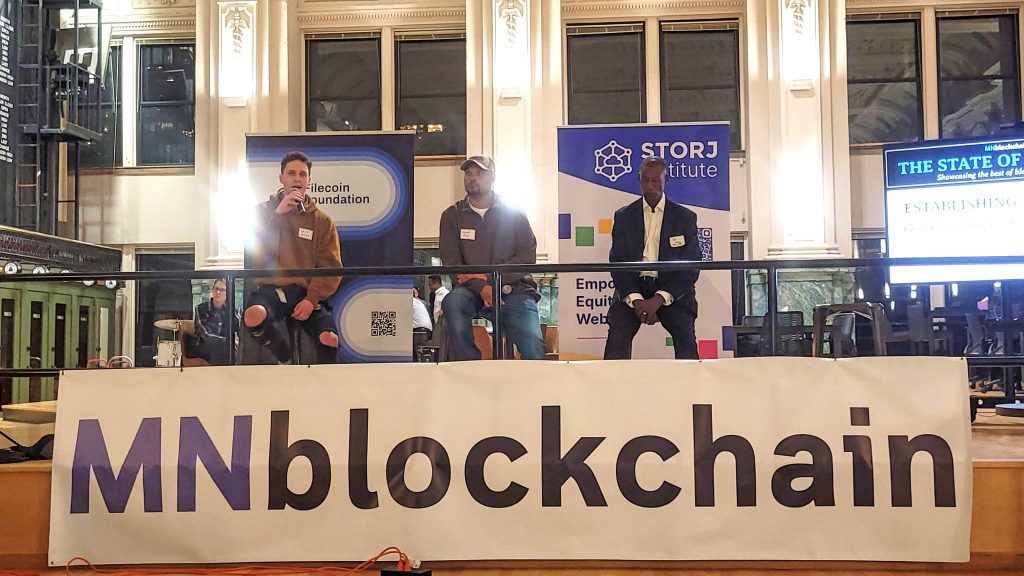Blockchain Technology
In an effort to provide 21st Century learning opportunities in the evolving space of technology, Osiris Organization is expanding its programming to include an Introduction to Blockchain Technology. The following details about blockchain technology is just the tip of the iceberg around the evolution and growing use of this technology space. Upon completion of the introductory course, participants will have obtained the fundamental knowledge and understanding to progress to learning the more intricate concepts, uses, benefits and structure of blockchain technology and its related disciplines. Contact us HERE to stay informed of our Blockchain Technology training opportunities.
What is blockchain technology?
Blockchain technology is an advanced database mechanism that allows transparent information sharing within a business network. A blockchain database stores data in blocks that are linked together in a chain. The data is chronologically consistent because you cannot delete or modify the chain without consensus from the network. As a result, you can use blockchain technology to create an unalterable or immutable ledger for tracking orders, payments, accounts, and other transactions. The system has built-in mechanisms that prevent unauthorized transaction entries and create consistency in the shared view of these transactions.
Why is blockchain important?
Traditional database technologies present several challenges for recording financial transactions. For instance, consider the sale of a property. Once the money is exchanged, ownership of the property is transferred to the buyer. Individually, both the buyer and the seller can record the monetary transactions, but neither source can be trusted. The seller can easily claim they have not received the money even though they have, and the buyer can equally argue that they have paid the money even if they haven’t.
To avoid potential legal issues, a trusted third party has to supervise and validate transactions. The presence of this central authority not only complicates the transaction but also creates a single point of vulnerability. If the central database was compromised, both parties could suffer.
Blockchain mitigates such issues by creating a decentralized, tamper-proof system to record transactions. In the property transaction scenario, blockchain creates one ledger each for the buyer and the seller. All transactions must be approved by both parties and are automatically updated in both of their ledgers in real time. Any corruption in historical transactions will corrupt the entire ledger. These properties of blockchain technology have led to its use in various sectors, including the creation of digital currency like Bitcoin.
How do different industries use blockchain?
Energy
Energy companies use blockchain technology to create peer-to-peer energy trading platforms and streamline access to renewable energy. For example, consider these uses:
- Blockchain-based energy companies have created a trading platform for the sale of electricity between individuals. Homeowners with solar panels use this platform to sell their excess solar energy to neighbors. The process is largely automated: smart meters create transactions, and blockchain records them.
- With blockchain-based crowdfunding initiatives, users can sponsor and own solar panels in communities that lack energy access. Sponsors might also receive rent for these communities once the solar panels are constructed.
Finance
Traditional financial systems, like banks and stock exchanges, use blockchain services to manage online payments, accounts, and market trading. For example, Singapore Exchange Limited, an investment holding company that provides financial trading services throughout Asia, uses blockchain technology to build a more efficient interbank payment account. By adopting blockchain, they solved several challenges, including batch processing and manual reconciliation of several thousand financial transactions.
Media & Entertainment
Companies in media and entertainment use blockchain systems to manage copyright data. Copyright verification is critical for the fair compensation of artists. It takes multiple transactions to record the sale or transfer of copyright content. Sony Music Entertainment Japan uses blockchain services to make digital rights management more efficient. They have successfully used blockchain strategy to improve productivity and reduce costs in copyright processing.
Retail
Retail companies use blockchain to track the movement of goods between suppliers and buyers. For example, Amazon retail has filed a patent for a distributed ledger technology system that will use blockchain technology to verify that all goods sold on the platform are authentic. Amazon sellers can map their global supply chains by allowing participants such as manufacturers, couriers, distributors, end users, and secondary users to add events to the ledger after registering with a certificate authority.
Healthcare
Health data that’s suitable for blockchain includes general information like age, gender, and potentially basic medical history data like immunization history or vital signs. On its own, none of this information would be able to specifically identify any particular patient, which is what allows it to be stored on a shared blockchain that could be accessed by numerous individuals without undue privacy concerns.
As specialized connected medical devices become more common and increasingly linked to a person’s health record, blockchain can connect those devices with that record. Devices will be able to store the data generated on a healthcare blockchain and append it to personal medical records. A key issue currently facing connected medical devices is the siloing of the data they generate — but blockchain could be the link that bridges those silos.
Real Estate
The average homeowner sells his or her home every five to seven years, and the average person will move nearly 12 times during their lifetime. With such frequent movement, blockchain could certainly be of use in the real estate market. It would expedite home sales by quickly verifying finances, reduce fraud thanks to its encryption, and offer transparency throughout the entire selling and purchasing process.
Non-Profit Agencies
Blockchain could solve the anti-trust problems charities are increasingly facing through greater transparency; the technology has the ability to show donors that NPOs are in fact using their money as intended. Furthermore, blockchain tech could help those NPOs tribute those funds more efficiently, manage their resources better, and enhance their tracking capabilities.
Voting
Blockchain technology has the ability to make the voting process more easily accessible while improving security. Hackers would be no match to blockchain technology, because even if someone were to access the terminal, they wouldn’t be able to affect other nodes. Each vote would be attributed to one ID, and with the ability to create a fake ID being impossible, government officials could tally votes more efficiently and effectively.
Blockchain technology has the following main features:
Decentralization
Decentralization in blockchain refers to transferring control and decision making from a centralized entity (individual, organization, or group) to a distributed network. Decentralized blockchain networks use transparency to reduce the need for trust among participants. These networks also deter participants from exerting authority or control over one another in ways that degrade the functionality of the network.
Immutability
Immutability means something cannot be changed or altered. No participant can tamper with a transaction once someone has recorded it to the shared ledger. If a transaction record includes an error, you must add a new transaction to reverse the mistake, and both transactions are visible to the network.
Consensus
A blockchain system establishes rules about participant consent for recording transactions. You can record new transactions only when the majority of participants in the network give their consent.

